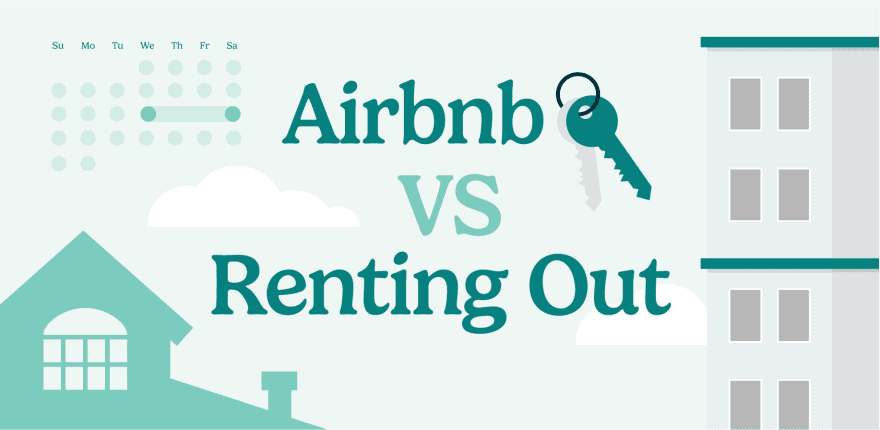When planning a trip, one of the biggest decisions you’ll face is where you’ll stay. The choice often comes down to Airbnb and traditional rentals. While both offer comfortable accommodation, the right option depends on your travel goals, budget, and personal preferences. Each comes with its own set of costs, rules, and experiences, and understanding the pros and cons is essential before booking.
This guide compares Airbnb and renting through key factors such as prices, flexibility, amenities, lease terms, guest experience, and even how these options impact local communities. We will also explore regulations, management requirements, occupancy rates, and other considerations that landlords, guests, and property managers face as a result.
Quick Summary
This article explored the differences between Airbnb and renting, focusing on cost, flexibility, amenities, legal requirements, and guest experiences. Airbnb offers short-term convenience, varied amenities, and seasonal pricing, making it ideal for travelers who value flexibility. Renting provides stability, predictable pricing, and long-term housing solutions, appealing to those needing extended stays. Both come with legal considerations, tax implications, and different impacts on local communities. Choosing between them depends on travel goals, budget, and personal priorities.
Cost Comparison
Price Factors for Airbnb
Airbnb pricing often fluctuates based on seasonality, occupancy rate, vacancies, vacation destination demand, and property condition. Hosts can adjust the amount charged depending on high or low seasons. While this flexibility benefits hosts seeking higher revenue, travelers may face peak-season surges.
In some cases, Airbnb offers discounts for longer stays, but these may still be higher than the monthly rent of a traditional apartment. Additional fees such as cleaning charges, platform service fees, and taxes can increase the total cost.
Price Factors for Renting
Renting a property typically involves a fixed monthly rent agreed upon in a rental agreement or lease contract. This arrangement provides stability for both the landlord and the tenant. While renting may require deposits or prepayment, it generally avoids the fluctuating rates of vacation rentals.
However, a landlord may pass along costs for damages or property maintenance. Renters may also be responsible for appliances upkeep, utilities, and other housing-related expenses.
Flexibility and Availability
Airbnb’s Booking Advantage
Airbnb offers greater flexibility for travelers who need short-term stays without signing a long lease. Bookings can be made for a single night, a week, or several months, depending on the host’s permit and occupancy regulations. This makes it an ideal solution for people who prefer not to commit to a long-term rental agreement.
Renting and Long-Term Stability
A rental property requires a contract or lease, typically lasting six months to a year, which offers housing stability but limits spontaneous changes. Breaking a lease often comes with penalties or loss of a security deposit, making it less adaptable for travelers.
Amenities and Services Offered
Airbnb Amenities
Many Airbnb listings include fully furnished spaces with some modern advantages and appliances, high-speed Wi-Fi, and even perks and aspects like free parking or on-site gyms. The variety can range from budget-friendly rooms to luxury vacation rentals.
However, amenities may vary based on the host’s budget and management approach. Some listings provide essentials like towels and cookware, while others offer premium extras for added value.
Renting Amenities
Long-term rentals often come unfurnished, requiring tenants to purchase or bring their own appliances and furniture. While some rental agreements include basic appliances such as stoves or refrigerators, maintenance responsibilities may fall to the renter depending on the terms outlined in the lease.
Lease Terms and Regulations
Airbnb Regulations
Airbnb hosting often requires compliance with local regulations, which may include limits on the number of nights a property can be rented, specific requirements for safety, and zoning rules. Many cities require hosts to obtain a permit to operate legally.
Rental Agreement Rules
A traditional rental agreement outlines the condition of the property, payment obligations, and rules for tenants. These contracts also clarify responsibilities for damages, repairs, and property maintenance.
Target Audience and Demographics
Airbnb often appeals to younger travelers, remote workers, and tourists seeking a unique stay. Many opt for Airbnb when looking for a vacation rental that offers more character than a hotel. Renting is often chosen by students, professionals relocating for work, and families needing stable housing for an extended period.
Hosting Requirements for Airbnb
Airbnb hosts must handle guest communication, property cleaning, booking schedules, and property manager tasks. Hosts are also responsible for ensuring that the property meets safety standards and is in good condition before each stay. Many successful hosts treat Airbnb as a business, focusing on reputation, guest reviews, and success through consistent service.
Tax Implications and Legal Considerations
Both Airbnb and renting have tax obligations. Income from an Airbnb stay is considered taxable revenue, and expenses such as property maintenance, cleaning, and utilities can often be deducted. Landlords collecting rent from long-term tenants also declare this revenue, with different rules applying depending on local laws.
Longevity of Stay: Short-Term vs Long-Term
Short-term Airbnb stays suit travelers seeking flexibility, while long-term rentals offer stability. For those moving to a new city, starting with an Airbnb before transitioning to a rental can be a strategic decision, allowing time to explore neighborhoods before committing to a lease.
Guest Experience and Satisfaction
Airbnb can offer a personalized experience, with hosts providing local recommendations and unique amenities. However, guest satisfaction can depend heavily on the host’s attention to detail and responsibility, property cleanliness, and adherence to house rules. Renting offers a more predictable environment, but without the personal touches often found in Airbnb stays.
Impact on Local Communities
Airbnb’s growth has sparked debates about its impact on the housing market, as some argue that converting long-term rentals into short-term listing reduces housing availability and increases rents. On the other hand, renting provides consistent occupancy for properties and supports neighborhood stability.












